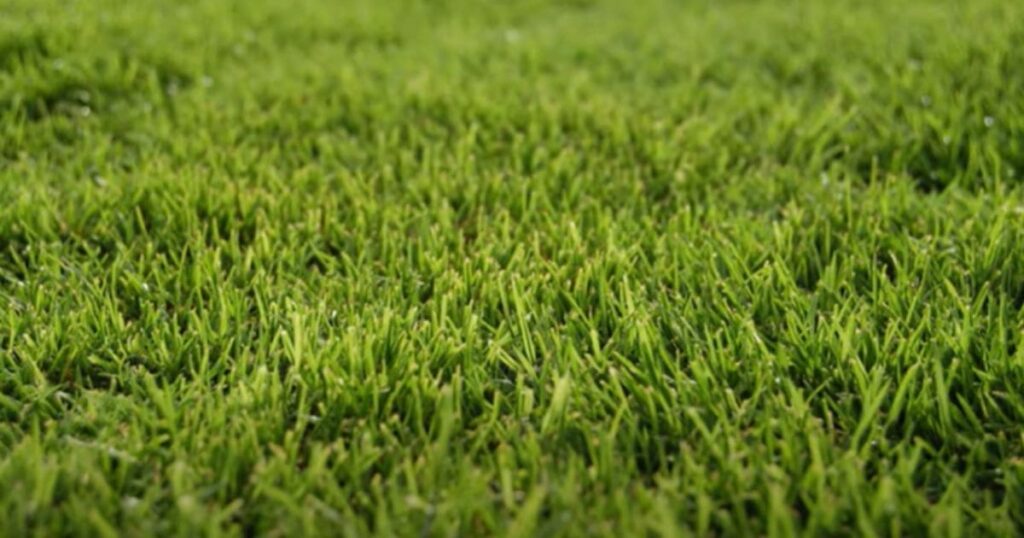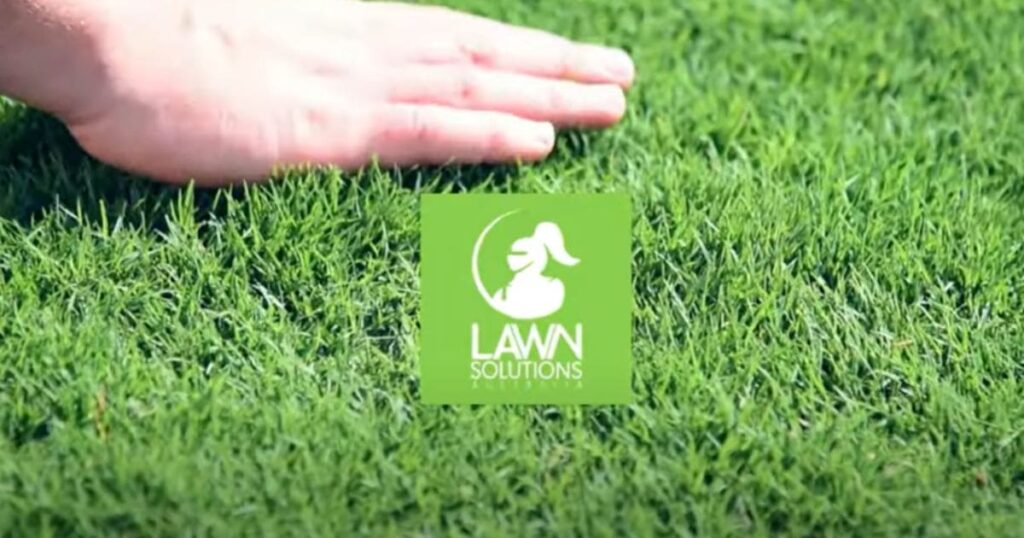As an Amazon Associate, I earn from qualifying purchases
Buffalo grass and Bermudagrass are two warm-season turfgrasses that grow well in lawns. Buffalo grass is a fine-textured, low-maintenance, and drought-tolerant grass; while Bermudagrass has an aggressive growth habit as it thrives in hot climates.
It is generally grown as an eco-friendly, low-maintenance alternative to the most commonly used lawn grass for warm areas — Bermudagrass. On the other hand, Bermudagrass is a very hardy grass that can effectively rapidly spread through bare areas of your lawn which makes it ideal for places in constant use.
Given this difference in grass types, homeowners should understand the characteristics of each type: what one characteristic can best meet his or her needs for a particular location?

Buffalo Grass vs. Bermuda Grass: Key Differences
Bermuda Grass Most of the warm-season turfgrass options, such as Buffalo grass and also Bermuda yard, seem like viable choices since they have distinctive qualities ideal for various yard uses. The benefits of buffalo grass are that it needs very little maintenance, can survive on its own during droughts, and does well in various types of soil.
Buffalo grass is another highly adaptable variety best used for cooler climates and low-traffic areas, while Bermuda grass varieties do well in sunny locales with high use. Knowing these differences may help you decide on the right grass for your lawn.
What Is Buffalo Grass?

Buffalo grass is a warm-season turfgrass (Bouteloua dactyloides) native to the Great Plains, where it once was an important component of North American short-grass prairies from Alberta to Texas. Buffalo grass is a common alternative in dry and semi-arid zones because of its drought tolerance, low water needs, and excellent wear resistance.
It has slender, soft blades and quickly spreads out in a tight mat making it both durable and attractive. Buffalo Grass: Buffalo grass is different from other forms of turf and it grows more slowly which means they do not grow too fast, therefore doesn’t require regular trimming as often which saves water.
Best for:
Drought Tolerance: Buffalo grass is highly drought-tolerant, making it ideal for areas with limited water availability. Its deep root system helps it survive prolonged dry periods with minimal irrigation.
Low Maintenance: With its slow growth rate, Buffalo grass requires less frequent mowing compared to faster-growing grass types.
Adaptability: Buffalo grass thrives in a variety of soil types, including poor and sandy soils. Its ability to adapt to different conditions makes it versatile for various landscapes.
Pros of Buffalo Grass
Buffalo Grass Vs Bermudagrass
A. Drought Tolerance: Buffalo grass is also known for its ability to survive in arid climates with deep root systems that can be effectively maintained by watering irrigation at least once a month to prepare the soil before planting water buffalo.
B. Low Maintenance – Slow-growing varieties require less cutting and therefore result in reducing overall lawn maintenance for homeowners so they save time, money, and effort.
C. Buffalo grass can also adapt to multiple soil types including poor and sandy soils, allowing it versatility for different terrains.
D. Pest and Disease Resistance: This grass is naturally resistant to most pests, so it requires fewer chemicals or treatments than would otherwise be necessary for a healthy lawn.
Cons of Buffalo Grass
Slow Growth Rate: Buffalo grass grows slowly compared to other grass types, which can result in a longer establishment period. This means it may take more time to achieve a full, lush lawn.
Limited Shade Tolerance: While Buffalo grass can tolerate some shade, it thrives best in full sun. Its growth may be sparse or slow in heavily shaded areas, limiting its use in shaded lawns.
Seasonal Dormancy: Buffalo grass goes dormant in cooler temperatures, especially in areas with cold winters. During this dormant period, the lawn may turn brown and lose its visual appeal until temperatures rise again.
What Is Bermuda Grass?
It is a warm-season turfgrass that is indigenous to tropical and subtropical areas of the world. It is most popular for being lush and thick, desired traits when it comes to rapidly covering large areas; ideal as a turf on lawns (domestic or commercial), sports fields, and golf courses.
Bermuda grass needs full sun, withstanding high temperatures, so is ideal for hot climates. This is known for how quickly it grows and its high wear tolerance, which means if you were to damage your lawn from heavy foot traffic etc.
Kikuyu bounces back really fast. Bermuda Although Bermuda is a high-maintenance grass type that needs to be mowed often and well-watered for its good appearance and thick turf, these varieties are used mostly in hot sunny climates.
Best for:
Full Sun Exposure: Bermuda grass thrives in full sun and requires at least 6-8 hours of direct sunlight daily. It performs best in sunny areas and struggles in shaded conditions.
Warm Climates: Bermuda grass is well-suited for hot, sunny climates and can handle high temperatures. It grows actively during the warm season and goes dormant in cooler weather.
Well-Drained Soil: It prefers well-drained soil with good aeration. Sandy or loamy soils are ideal, but Bermuda grass can also tolerate a range of soil types as long as drainage is adequate.
Regular Watering: While Bermuda grass is drought-tolerant once established, it benefits from consistent watering, especially during hot, dry periods.
Pros of Bermuda Grass
Buffalo Grass Vs Bermudagrass
Heat Tolerance: Bermuda grass thrives in high temperatures and full sun, making it an excellent choice for hot climates where other grass types might struggle.
Durability and Wear Tolerance: Known for its robust nature, Bermuda grass can withstand heavy foot traffic and recreational use.
Dense Growth: Bermuda grass forms a thick, dense turf that helps prevent weed growth and provides a lush, carpet-like appearance. This density also contributes to its high wear resistance.
Rapid Establishment: Bermuda grass grows quickly, allowing for fast establishment of new lawns or repair of damaged areas. This rapid growth could help achieve a full, healthy lawn in a shorter time.
Drought Tolerance: Once established, Bermuda grass exhibits good drought resistance, requiring less frequent watering compared to some other grass types.
Cons of Bermuda Grass
High Maintenance: Bermuda grass grows rapidly and requires frequent mowing to maintain its dense, carpet-like appearance. This can be time-consuming and may require regular upkeep.
Water Needs: While drought-tolerant once established, Bermuda grass requires consistent watering during dry periods to maintain its lush appearance.
Aggressive Growth: Bermuda grass spreads aggressively through underground rhizomes and above-ground stolons. This can lead to it encroaching into garden beds or other areas where it’s not desired, requiring additional effort to control its spread.
Buffalo Grass vs. Bermuda Grass

The decision between Buffalo grass and Bermuda grass largely depends on the needs of your lawn as well as environmental conditions. Buffalo grass is perfect for non-domestic, drought-tolerant homes in milder places but anywhere it improves a coarse feel with the lowest water taken care of necessary.
On the other hand, Bermuda grass performs well in hot, sunny locations and its lush thick turf stands up to heavy foot traffic with excellent wear recovery. Buffalo grass has a higher tolerance for drought with less water and mowing, Bermuda does require more frequent maintenance but offers bright green coverage suitable for heavy foot traffic areas.
Each type of grass has its own advantages, so which you choose will likely depend on your specific climate and how the lawn will be used.
Color: Buffalo Grass
Buffalo grass is usually light green, with some other breeds developing a slightly blue-green hue; thus it offers a soft and natural appearance to your lawns. This color may change slightly depending on environmental conditions and soil health, but it stays soft green throughout the growing season.
Buffalo grass naturally slows down during cooler months and this is shown by it going brown. Yet, for this seasonal alteration in tone, the hued configuration provides a nice easygoing vibe that backgrounds lots of category styles landscapes.
Foot Traffic Tolerance: Bermuda Grass
It Even Tolerates Foot Traffic Bermuda grass also carries an exceptional foot traffic ability, making it a recommended selection for high-use places such as sports areas, playgrounds, and recreational lawns. Dense Growth and Resilient Nature — These qualities can handle foot traffic with thousands of pounds per square in stride, franchisees on the grass so to speak.
The key to its strength is an aggressive growth habit that can repair damaged spots by spreading through rhizomes and stolons. And with the use of proper maintenance and regular mowing, it increases longevity to ensure you have a green court every time.
Softness: Buffalo Grass
The soft, luxurious texture contributes to the lawn’s visual appeal and adds a cushy surface for either leisurely strolling or lounging.
Buffalo Grass This softness combined with the fact that Buffalo grass is drought tolerant and low maintenance, makes it a very popular choice for homeowners looking to grow lush green lawns while at the same time spending less–by way of money, water, or even physical work.
Cold Tolerance: Buffalo Grass
Buffalo grass has a fair cold tolerance, so it can handle colder temperatures better than some other warm-season species. It is frost tolerant but may die back and high rains in a temperate winter region do not slow growth.
But in places with lots of winter cold or very long periods well below freezing, buffalo turns brown and goes dormant during the cool season only to green up again when it gets warm awhile. It suffers in extreme cold, making it more suitable for regions that have mild winters unless you replace your current grass.
Drought Resistance: Buffalo Grass
Buffalo grass is known for its excellent drought tolerance, helping to conserve water in places with little of it available. With a deep root system, the tea tree can access water sources in soil further down than its main competitors making it an attractive option for certain environments during longer dry periods.
This resiliency allows it to remain vigorously green with low irrigation, requiring less water than traditional grass which enables this species of turfgrass to be an eco-friendly solution for a drought-tolerant lawn area.
Speed of Growth: Bermuda Grass
Known for its rapid growth rate, Bermuda grass quickly forms a thick and luxurious turf. It has vigorous growth that allows it to recover quickly from damage, which is why it’s advisable for high-traffic areas.
It is, however, moderately to rapidly growing and does need mowing if a particularly neat finish is required. Bermuda recoils from scalping but shoots up thick, fast so you can mow often for the densest possible turf.
Resistance to Pests and Disease: Tie
Except for one or two relatively minor pests and diseases, buffalo grass is a very low-input type of lawn which further adds to its appeal with homeowners. Not only is this a lovely-looking resilient grass seed, but its natural defense system means less need for harsh chemical treatments making it another healthy sustainable lawn alternative.
Yet, despite its ability to overcome most of the problems its environment might throw at it, zebra grass is not immune from diseases like grubs and fungus infections that can sometimes hurt their overall well-being.
Final Thoughts: Buffalo Grass vs. Bermuda Grass
Buffalo grass and Bermuda grass are a great option if you have the right conditions for it on your lawn. Buffalo grass is a low-maintenance, drought-tolerant choice that provides an attractive lawn with little watering and care, perfect for cooler climates or modest yards.
Conversely, Bermuda grass excels in hot, sunny spots producing a thick very long-lasting turf able to stand up to heavy website traffic and rapidly bounce back from wear however it needs more frequent mowing and irrigation.
This guide should help you determine the best kind to ensure your lawn is optimally healthy and visually appealing.
As an Amazon Associate, I earn from qualifying purchases
